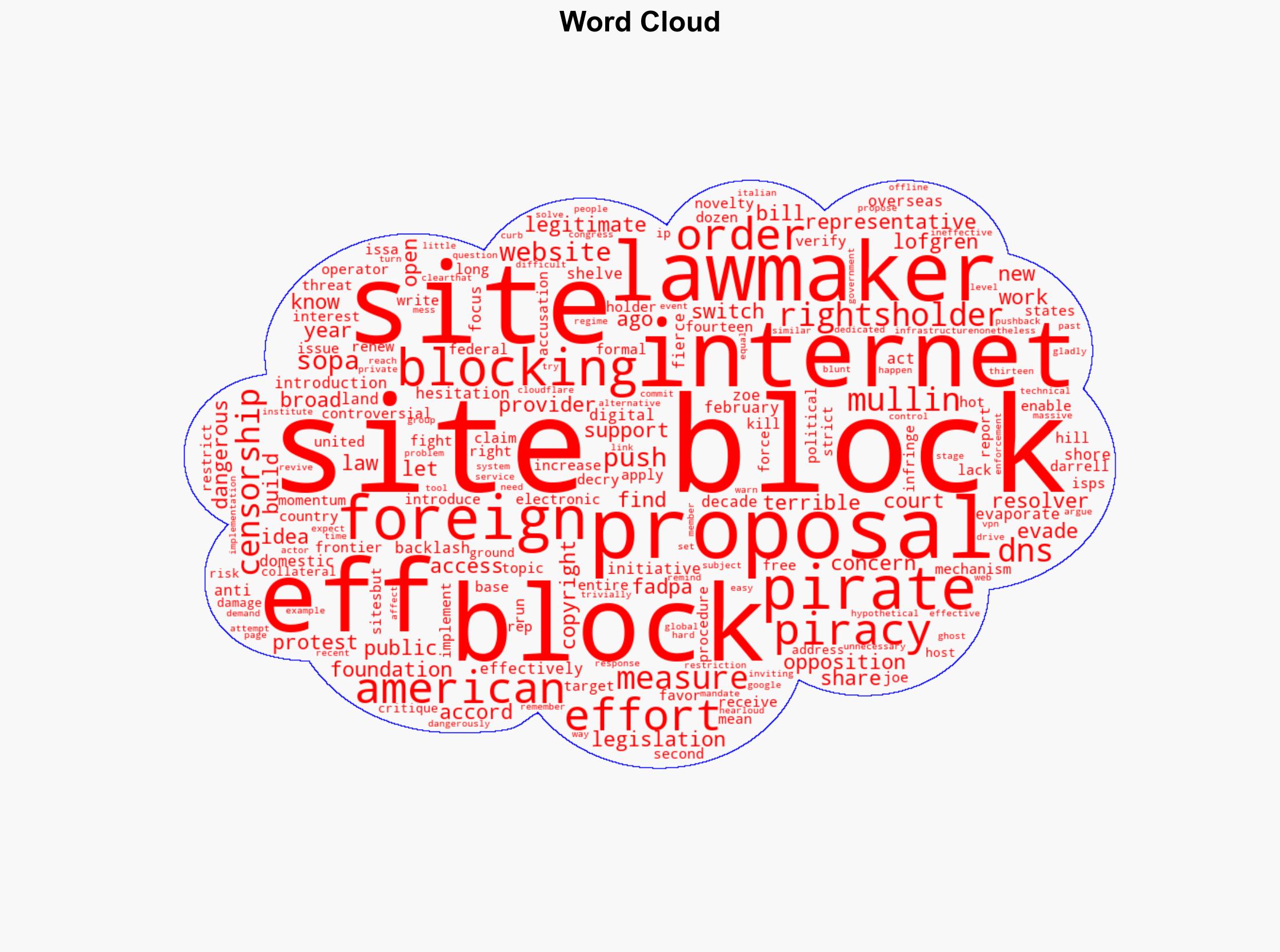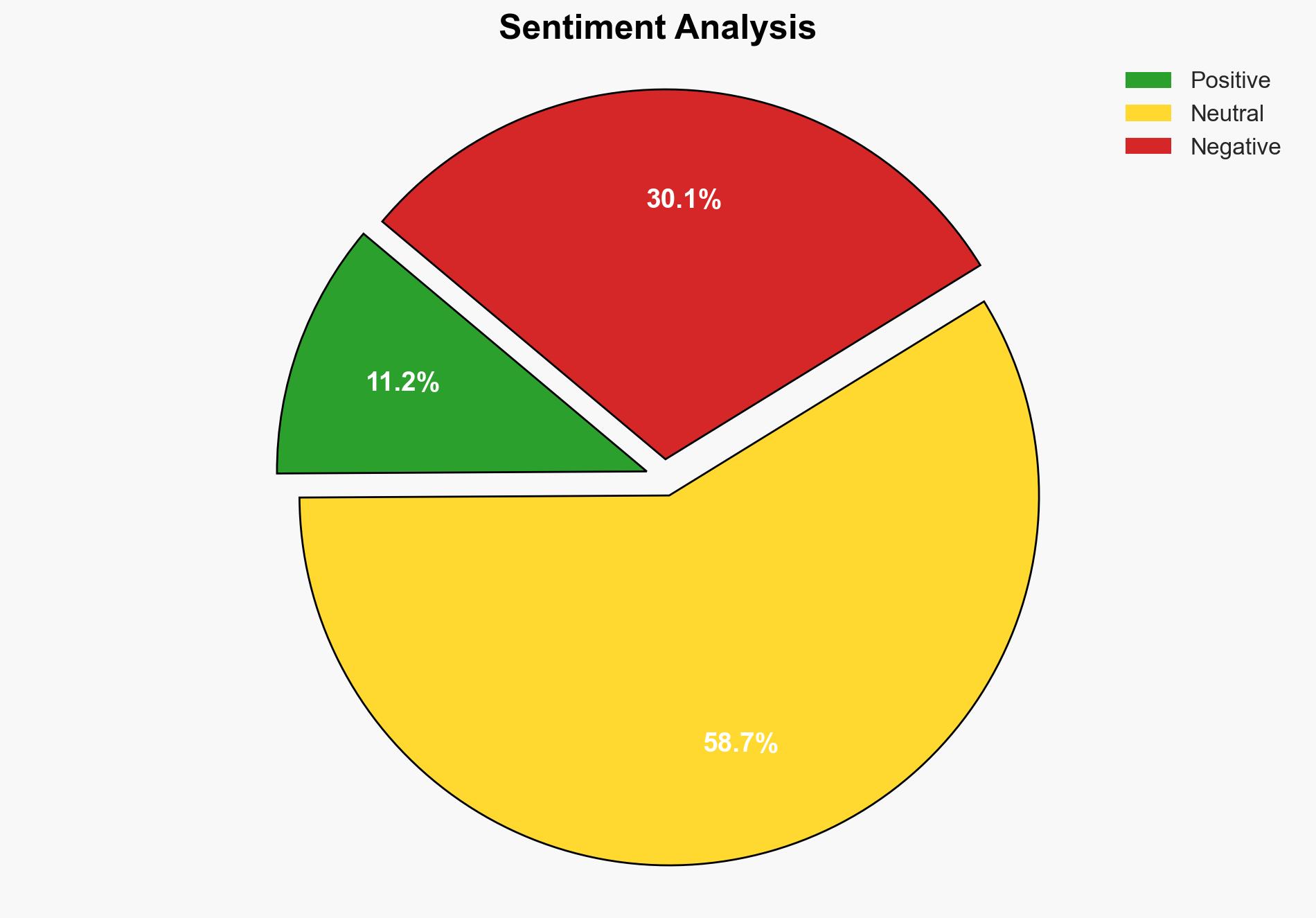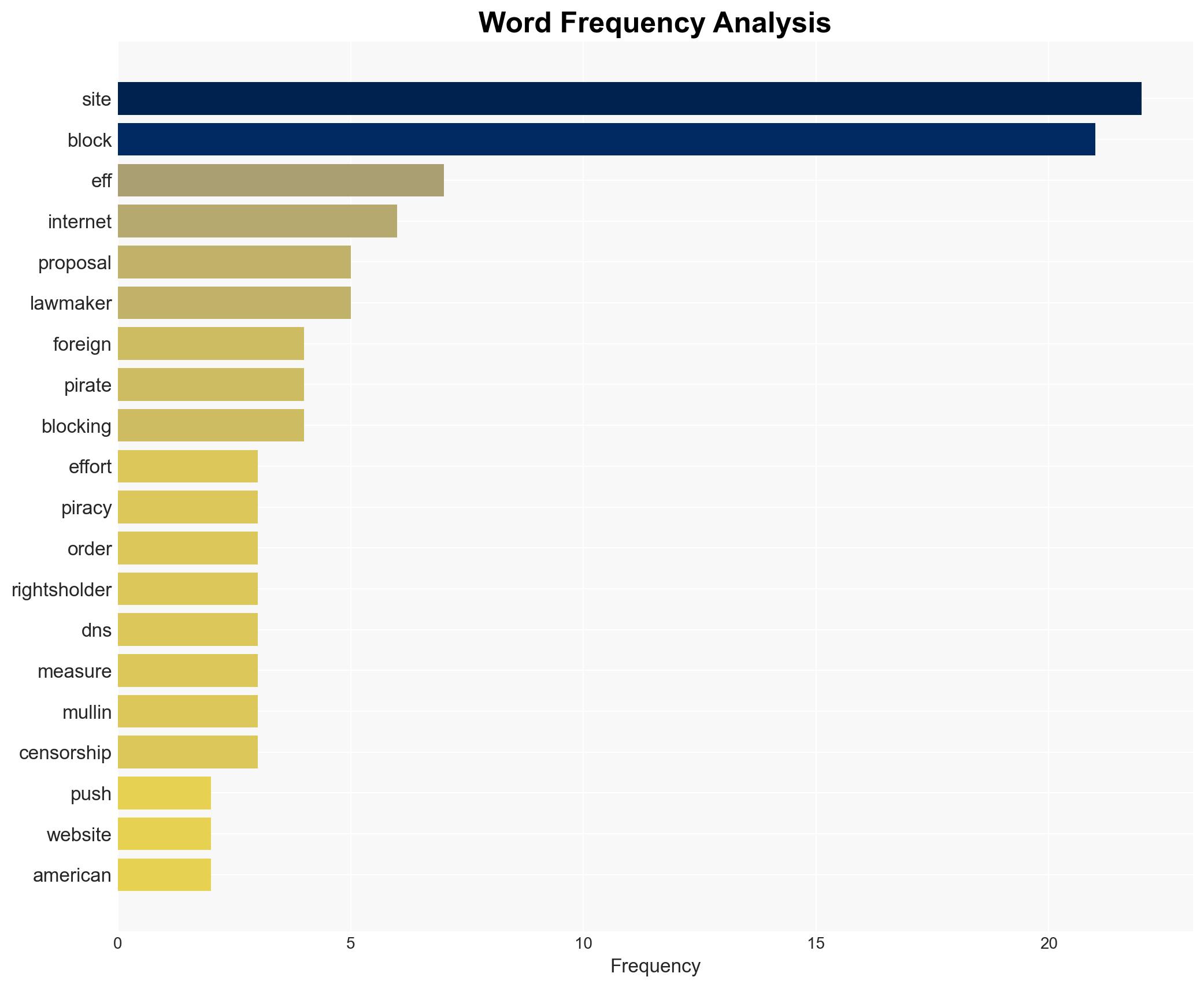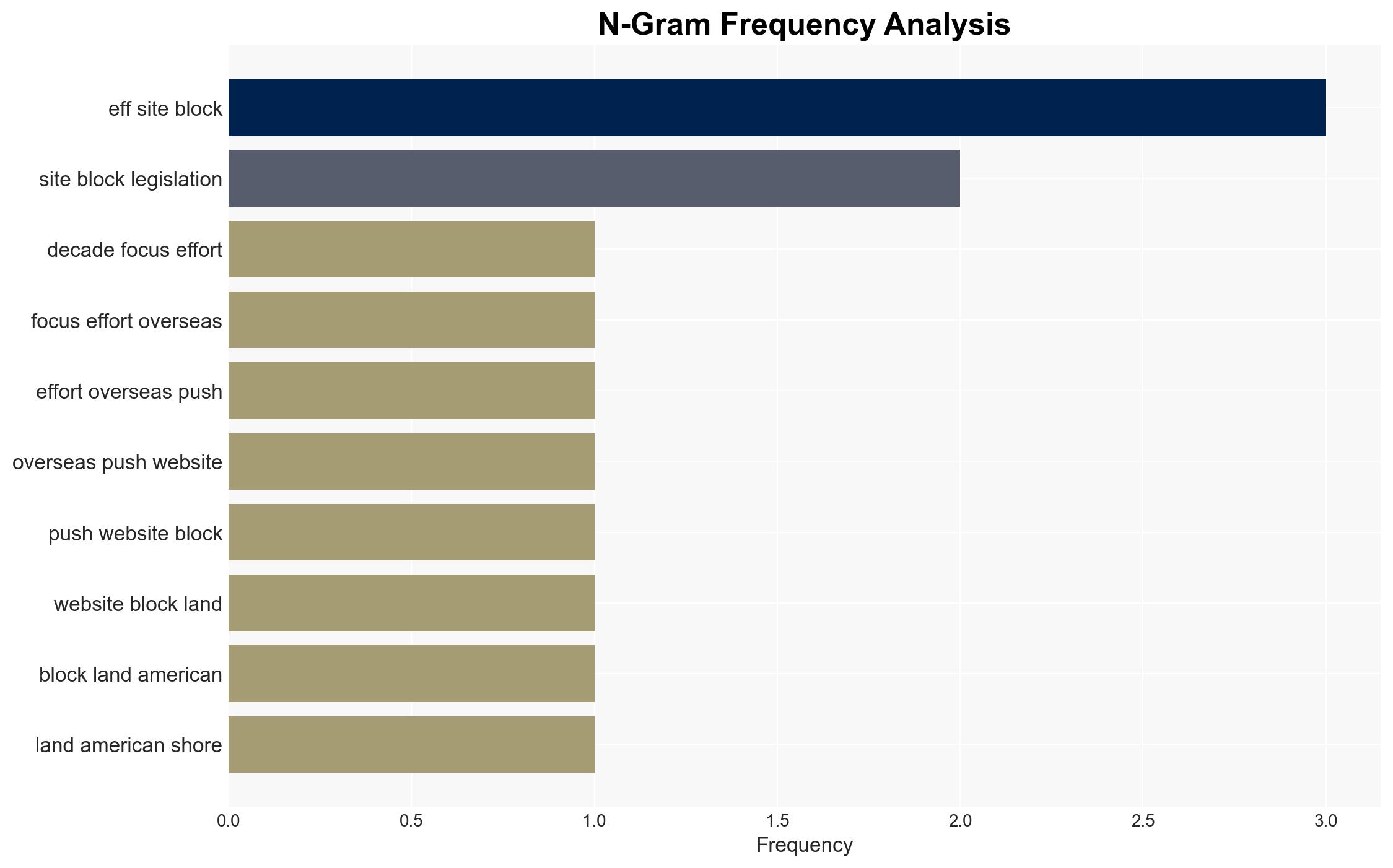EFF Vows to Fight Back Against US Site Blocking Bills – Torrentfreak.com
Published on: 2025-04-03
Intelligence Report: EFF Vows to Fight Back Against US Site Blocking Bills – Torrentfreak.com
1. BLUF (Bottom Line Up Front)
The Electronic Frontier Foundation (EFF) is actively opposing new legislative efforts in the United States to implement site-blocking measures targeting foreign piracy websites. The proposed Foreign Anti-Digital Piracy Act (FADPA) aims to empower rightsholders to obtain court orders to block access to alleged pirate sites. The EFF argues that such measures threaten the open internet, could lead to collateral damage affecting legitimate sites, and may not effectively curb piracy. The organization is mobilizing public opposition reminiscent of the successful campaign against the Stop Online Piracy Act (SOPA) over a decade ago.
2. Detailed Analysis
The following structured analytic techniques have been applied for this analysis:
General Analysis
The introduction of FADPA represents a renewed effort to address digital piracy through legislative means. The bill proposes allowing rightsholders to seek court orders to block foreign-operated pirate sites, with enforcement directed at internet service providers and public DNS resolvers. This approach mirrors previous attempts, such as SOPA, which faced significant public and industry backlash. The EFF’s opposition is based on concerns about potential overreach, the risk of legitimate sites being inadvertently blocked, and the ineffectiveness of such measures in actually reducing piracy. The organization highlights the ease with which users can circumvent site blocks using VPNs and alternative DNS services.
3. Implications and Strategic Risks
The proposed site-blocking legislation poses several strategic risks:
- National Security: The implementation of site-blocking measures could set a precedent for increased government control over internet access, potentially leading to broader censorship capabilities.
- Regional Stability: The legislation may strain international relations, particularly with countries hosting the targeted websites, and could lead to retaliatory measures.
- Economic Interests: The risk of collateral damage to legitimate businesses sharing IP addresses with targeted sites could have economic repercussions, affecting trust in U.S. internet governance.
4. Recommendations and Outlook
Recommendations:
- Engage in dialogue with stakeholders, including technology companies and civil liberties organizations, to address concerns and seek balanced solutions.
- Consider alternative approaches to combating piracy that do not involve broad site-blocking measures, such as enhancing digital rights management and fostering international cooperation.
- Implement robust oversight mechanisms to ensure that any site-blocking orders are narrowly tailored and minimize the risk of collateral damage.
Outlook:
Best-case scenario: A collaborative approach leads to the development of effective anti-piracy measures that respect internet freedom and avoid broad censorship.
Worst-case scenario: The legislation is enacted without sufficient safeguards, resulting in widespread internet censorship and international backlash.
Most likely outcome: Continued debate and public opposition delay or alter the legislative process, potentially leading to a compromise solution.
5. Key Individuals and Entities
The report mentions significant individuals and organizations, including Zoe Lofgren, Darrell Issa, and the Electronic Frontier Foundation (EFF). Their involvement is critical in shaping the discourse and potential outcomes of the proposed legislation.




